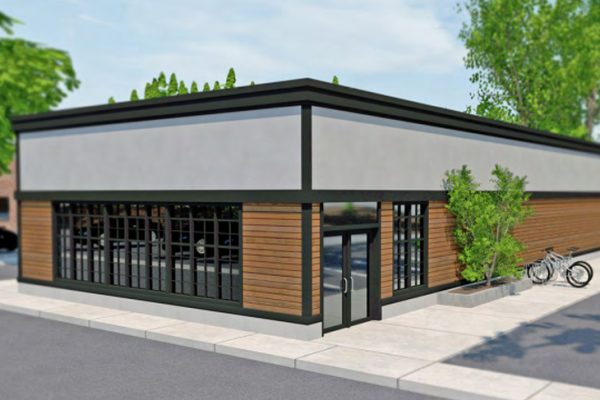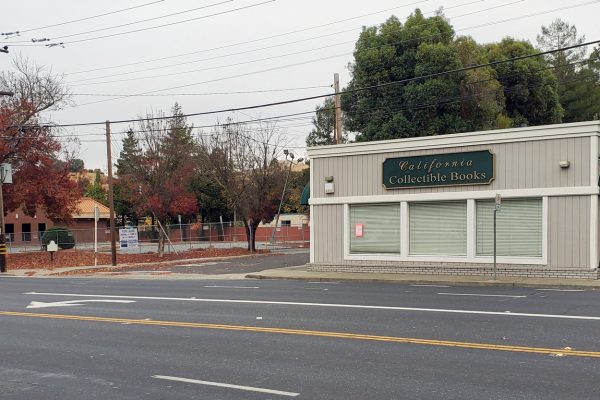MARTINEZ, Calif. – The City council awarded Firefly Health Inc. a Conditional Certificate to establish a 3,000 square foot retail cannabis facility. There were seven applicants for two permits that the city may issue to conduct a commercial marijuana business within Martinez City limits.
Martinez will receive a six percent tax on the gross receipts of sales, the creation of 20 to 30 new jobs, and the applicant agreed to abide by security, and all other city and state regulations.
According to the selection scoring system, and without considering the late applicant, Firefly was the winner. In some sense, a case could be made that Firefly was favored because it had applied long before, and was asked to wait until the city had worked out the details of how to regulate the cannabis business in Martinez.
According to a City Staff report, “the Proposal Review Committee (PRC) met on August 28, 2019. They discussed the Firefly Proposal in depth and followed up the assessment with an interview of the owners of the on September 11, 2019. Based on this review, Firefly was given an overall score of 90%, including bonus points. Firefly submitted a very complete proposal overall, the one exception was the cover letter, which did not include the information requested. However, the Proposal scored well in all other categories.
“The scoring process, evaluates all proposals in six categories: Cover Letter, Interview, Information required by the RFP, Information required for performance criteria, Additional Information required by business type and bonus points.”
The decision was preceded by an appeal from Roland High Inc., another applicant which reportedly submitted its application over 35 minutes late due to a set of circumstances beyond their control.
According to a City Staff report, “on July 3, 2019, Dustin R. Smith, Smith Development and Construction Company, (preparer of the Proposal on behalf of Roland High, Inc.) called city staff and told staff he was on his way to deliver appellants’ Proposal. Staff noted that he seemed distraught and he listed several reasons that may cause him to arrive after the 4:00 pm deadline. Staff listened to his explanation and stated that while staff would not be able to change the deadline, he was encouraged to arrive safely. Ultimately, Mr. Smith arrived to submit appellants’ commercial cannabis proposal at approximately 4:20 pm and spent the next twenty minutes assembling the required binders at the permit counter. He restated his request for staff to allow the tardy submittal to be accepted. Staff consulted with the City Attorney and replied that staff would review all appropriate sections of the municipal code and would retain but not accept his proposal during this interim period.”
Three local people did speak in favor of the company at the Oct. 2 council meeting, and there was one person who said he had a good, long-term business relationship with the company in San Francisco.
Mayor Rob Schroder had recused himself, and the council voted three to one, to deny the Roland High appeal with Councilman Mark Ross opting to grant the appeal.
Medical marijuana was allowed in Martinez shortly after the passage of Prop. 215 in 2000, and Firefly applied for a facility in 2017, according to Farid Harrison, who spoke for Firefly Health, Inc., Oct. 2.
Three executive officers of the company have close life, and business ties to the central Contra Costa area. Harrison said they have cooperatively supported Martinez and strengthened those bonds in the interim.
City Attorney Jeffrey Walter, of Walter & Pistole said the city would have a better than even chance of winning a lawsuit if someone decided to sue the city for choosing Firefly. “There is law to support it (preferential treatment),” he remarked.
The conditional permit gives Firefly a year to meet all of the conditions and begin operating. Harrison said the company hopes to be in operation at the site by January 2020 in a 3,000-3,500 square foot retail store.
Councilwoman Lara DeLaney asked what the company planned to do about equity for people of color who have been negatively impacted by previous marijuana laws. She was told they would hire non-violent offenders of the old laws and assist in efforts to expunge legal records of convictions. They also promised to put brands on the shelves that support the “Last Prisoner Program”.
Ross asked about the sale of vaping products. There was general interest and concern about it, but the council appeared to want to consider that issue separately, and not add another condition.
When security was discussed, the idea of a license plate reader came up. All agreed it could be useful and the possibility of the applicant paying for it became an option. The six percent tax is two percent higher than the county tax on similar locations, and there is some concern that high taxes and regulations have contributed to the failure of numerous legal marijuana businesses.
For those reasons and in the interest of fairness, Vice Mayor Noralea Gipner voiced her opposition to requiring the applicant to pay the reported $100,000 cost of a license reader. She said the city could buy one from the revenue created by the six percent tax.
Firefly also publicly agreed to offer customers an incentive, and easy disposal of packaging that will be recycled. All of the products come in sealed bags, which customers are not allowed to open on the premises.




